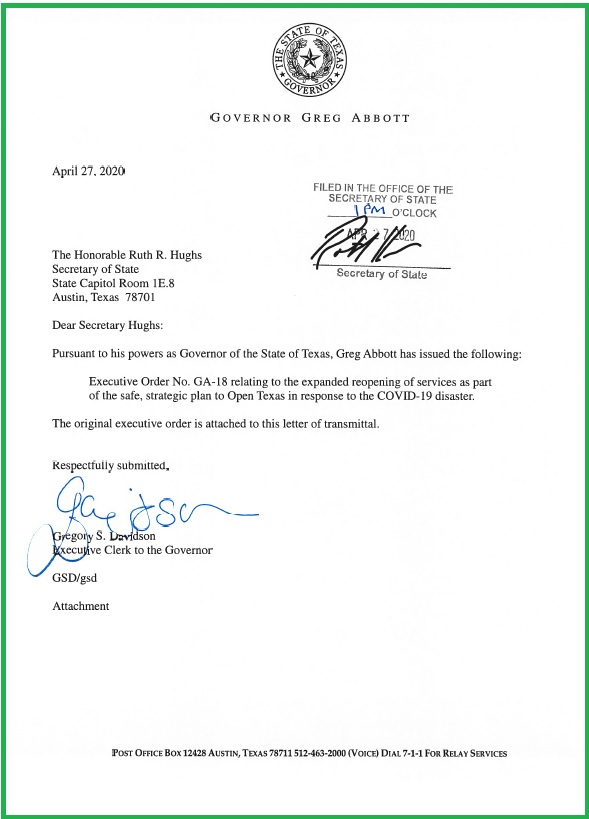PEC directors change board to single-member districts

By Lew K. Cohn, Managing Editor
The Highlander
Proposed changes to the bylaws of the Pedernales Electric Cooperative that change how directors are elected were passed Monday, Aug. 15, by the co-op's board of directors during a meeting that, at times, was very heated and tense.
The amendments to the bylaws — passed by a 5-2 supermajority vote — now create single-member districts in which only members who live within a district may vote for the director from that district. They also create a different quorum requirement for election of directors than that required for the annual PEC meeting, which is when director elections have traditionally taken place. The changes would take effect for the 2017 election cycle.
District 1 Director Cristi Clement of Marble Falls, who opposed the changes, tried to get the board to delay approval of changes to membership voting and to establish a membership advisory committee that would study the director election process and make recommendations to the board, but her motion was shot down by a similar 5-2 margin.
One proposed change approved at the meeting is to Article II, Section 6 of the bylaws to state that “Each member of a director district shall be entitled to one (1) vote upon each director election for that individual director district, and only Members of a director district may vote in that director district election.”
The amendments also established a separate quorum for the election of directors, requiring at least “one thousand (1,000) votes cast in each individual district if the vote being taken regards the election of the director of that district by the Members of that district.” Directors are then elected if they receive a plurality of the vote once the 1,000-vote district quorum is met.
The changes to the bylaws were proposed by District 4 Director Jim Powers of Hays County, who said he had to explain often to voters in his district, while collecting the 50 signatures required to be nominated, that while he is required to get signatures only from his district, the entire cooperative membership is allowed to vote whether to elect him.
“I had to explain to those same 50 people that it doesn't really matter a whole lot (that they must approve his nomination),” he said. “Hopefully you'll vote for me but the people in other parts … have as much control over me getting elected or not. They looked at that and couldn't quite understand why do we not have representation or feel like we do.”
A former Hays County judge, Powers said he believes the sheer size of the co-operative territory, which is comprised of about 8,100 square miles, is daunting for anyone trying to run for election.
“When you look at the co-op and how large it is, it is larger than the state of Massachusetts,” Powers said. “With 350,000 members, it's huge and it's very expensive to run and time consuming. I think a lot of good candidates who would sit up on this dais don't get the opportunity to run because of the expense and time, so I see a problem with it like that. I think it's important that we represent our areas.”
Powers called into question the co-op's prior system of electing directors to represent districts but through at-large voting and said his proposal “avoids a situation where someone can get elected and yet lose in their neighborhood.”
“That doesn't make any sense to me, because it's our neighbors that support us, that know us, that believe in what we do,” Powers said. “I think a bloc-vote type of approach is wrong. The other thing is accountability. All of these members are accountable. No one is going to bring an item that is a bridge to nowhere and get votes. We are all concerned about the co-op as a whole, but I think it is important that we carry the water for the place where we live.”
Burnet County Judge James Oakley, the District 5 director, supported Powers' proposal as he stated that when he discussed the at-large voting with members in his district, it “raised an eyebrow and there was some confusion and 100 percent of the people I interacted with didn't think that was right.
“I do think it is odd that the system is set up that you have to come from a certain geographic area, but even if you don't get the majority vote from that geographic area, you are voted in by members of another area,” Oakley said. “That just doesn't settle with me. That would be like our local state rep being decided by people that live in Dallas or Houston. I understand the co-op is not a local government; it is not a city, county or school, but there is a lot of things about local governance models that can apply to this body.”
Oakley said he believes the reason he soundly won re-election to the board this past June was because of his support for single-member districts and
“That is something I have always believed in, the single-member district methodology of voting, and I was very open about it during my original election and during my re-election, where I sat at a table right over there and on video camera and it was subsequently posted to the website that this was my position on the issue,” he said. “Fortunately, I won overwhelmingly in the election and I am humbled by that and I would think some of that has some basis on my position on that issue.”
Board President Emily Pataki, the District 2 director from Williamson County, and District 6 Director Paul Graf of Comal County also sided with Powers and Oakley in their support for changing how members vote for directors.
“I will add to that while we are a private corporation, we are protected by state law to exist as we do and our territories are because of government,” Pataki said. “That gives us a different set of rules than, say, AT&T, who can get customers anywhere they want. I agree with Director Oakley there are a lot of things from local governance models that we can take and implement here that will take us to another level of excellence in representing our members.”
“When somebody first comes to you and asks you to run, you look at 8,100 square miles to cover and if we were a state, we'd be bigger than five states and that's just a lot of territory,” Graf said. “Trying to reach out to 230,000 or 235,000 members, that is just an overwhelming task. Reaching out to the people that know us makes sense.”
Clement offered a substitute proposal to engage a member advisory committee on elections that would be comprised of one to three members from each district, appointed by the directors, to study the elections process and advise the board before any action be taken on changing the outlier voting system.
She noted voters have already decided twice, including most recently in June 2014 at the annual meeting in Cedar Park, to continue the current method of electing directors instead of choosing to only have district members elect individual directors. At that 2014 meeting, PEC members voted down proposed single-member districts by a margin of 9,219 to 7,957.
“Members have told us two times their preference for at-large voting,” Clement said. “The board of directors has fiduciary duties at the corporation level, not at the district level. We're expected to make decisions based on what is good for the cooperative as a whole. Our bylaws require us to act in good faith and represent all members on an impartial basis.
“If we went to single-member districts, you are not going to change the fiduciary responsibility, but it would invite behavior that would violate that. To pass this single-member district resolution, as flawed as this structure is, without having given proper member notice and an opportunity to have heard those voices heard again is inconsistent with the co-op way, plain and simple. I plead, please, let's make time to listen to our members again. We've got to be prudent and we've got to do our due diligence. There are a lot of disconnects in what is proposed, but above all, let's respect our members.”
Clement told board members that at-large voting is and should continue to be how the co-operative elects directors because it “is embedded in and a part of what a co-op is and why it works.
“You cannot excise out at-large voting because it is a part of the whole structure of governance,” Clement said. “If you go to single-member district voting and could change all of these rules to become compliant and legal, you are creating a situation where you are diluting a member's vote, his representation of his voice, because today, under the current, existing rules, he can speak seven times. You hold every one of these directors accountable.
“If you go to single-member districts, you've got one voice, one vote, and you become almost ineffective with not having that power to recall anybody. You've got a voter dilution problem and the representation value has to be equal. You cannot have some voters whose votes have a heavier weight than others. Simply, you've disempowered your members and let me tell you, they are going to notice, because they have, for the last six or seven years, known they can go and vote.”
Clement said she is afraid that changing voting methods, an “individual incentive would be for each director to take care of his or her own district and not look out for the interest of the entire co-operative.
“Let's remember who and where we came from,” Clement said. “We serve at the will of the members and that is why they are called member-owners. This is our reality. We are not like someone else; this is who we are. At-large voting is a tenet of the co-op because of the corporation. There's no getting around that.”
Clement also questioned the legality of changing to single-member district voting as she said the Texas Electric Cooperative Act requires “every member gets a vote on every issue at a membership meeting.
“There is also in our PEC articles that we will have a quorum of 5,000 members by attendance or by voting,” Clement said. “At least 5,000 members have to participate in conducting the action of a meeting whose purpose is for member elections. You have a problem considering what is in this amendment because you are flying in the face of the Texas Co-op Act and you've also got the PEC Articles involved in some of the governance.”
District 3 Director Kathy Scanlon of Austin said she was “shocked this resolution was even coming before the board of directors when the membership has already voted on it.
“They expect to be able to vote for all their board members because the board is supposed to represent all of the members,” Scanlon said. “I think we should look at other co-ops that have gone from outlier voting to single-member districts to see if they have any effect on the voter turnout, because in my opinion, it would reduce voter turnout.
“I would have supported this resolution if the membership had approved it, but they didn't, so I don't support it now. We will be inviting another class-action lawsuit if we pass this amendment over the wishes of the members.”
Without calling out Clement by name, Oakley implied that she may have influenced the 2014 election regarding single-member districts by writing an op-ed piece that was published in several newspapers throughout the co-operative's territory, including The Highlander and Burnet Bulletin.
“I felt the last time it was voted on, it was very much steered to being anti-single-member districts,” Oakley said. “I was very much in the minority on the board at that time. There was a last-minute push that cost $10,000 to put a yellow highlight on the ballot to highlight those things that were bad about single-member districts.
“The board agreed amongst themselves to not get involved in the election process and, subsequent to that, one of the board members put out an op-ed article that got published in the papers that this was against the law and would alter our tax-exempt status with the IRS. That's not true. We have a letter in writing from our outside CPA firm that's not the case. In that particular election, I feel like the members were somewhat misled and I question the results of that election.”
PEC General Counsel Don Richards said the draft presented to the board “complies with the law,” stating that while the Co-Op Act does call for “one-man, one-vote” at member meetings, he believes an interpretation of the PEC bylaws makes it possible to hold elections separately from the annual member meeting, which would then allow them to be conducted on a single-member basis.
“That left me with the opinion, and this law has never been tested or challenged in court, that the interpretation is whatever a court interprets it to be, but there appears to be a difference between a director election and a member meeting,” Richards said. “For that reason, there are a number of co-ops that elect directors other than at an annual meeting. The bylaw amendments I have drafted I believe would be legal under the law based on that you establish a difference between a member meeting and a director election as provided by state law.”
In the end, Powers, Oakley, Pataki, Graf and District 7 Director Amy Lea SJ Akers of Hays County voted in favor of the changes while Clement and Scanlon, who reserved the right to file a dissent, each voted against the changes.






